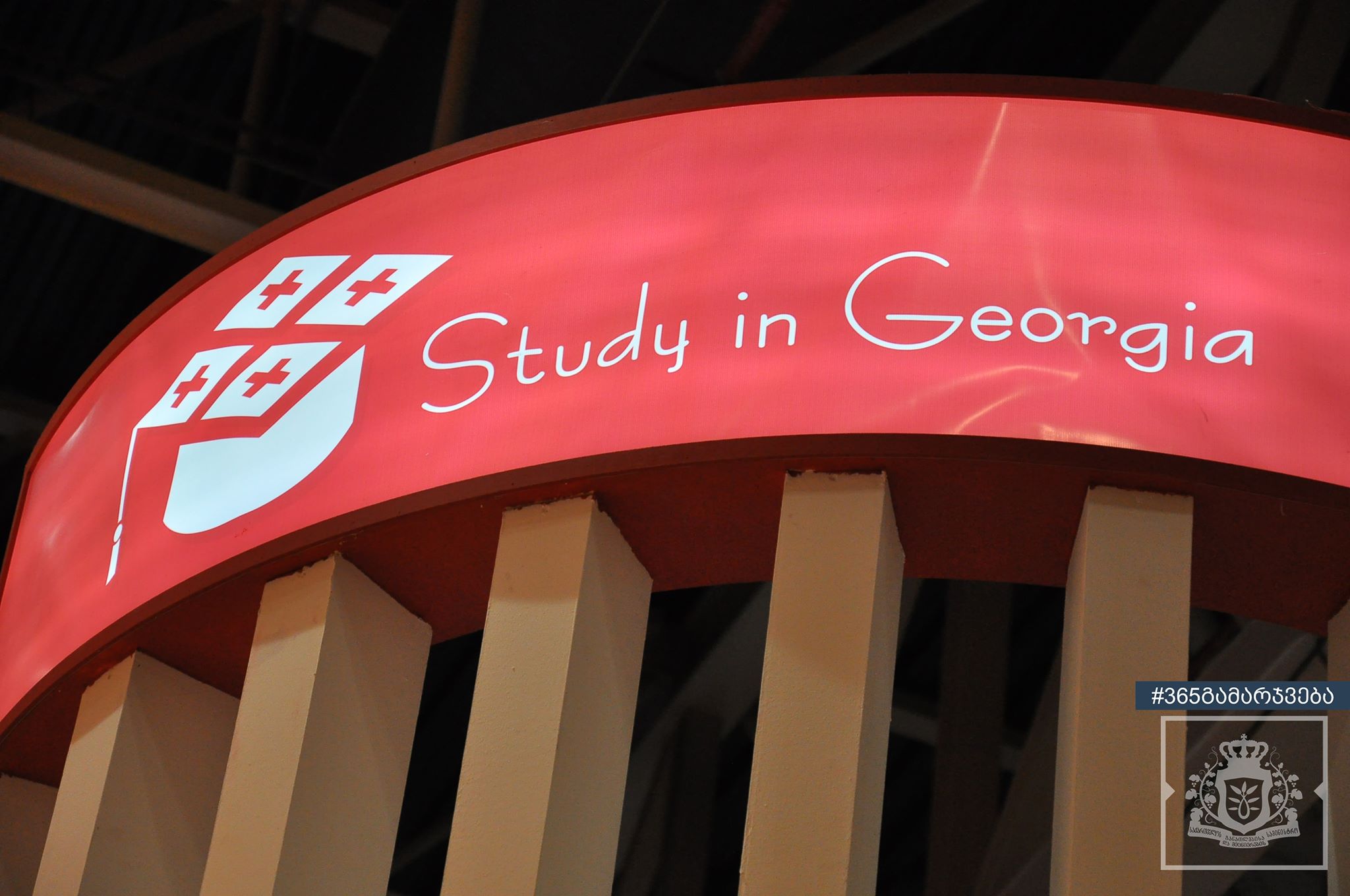University logo:
Program name: Master of Applied Genetics
University name: Ilia State University
Faculty: School of Natural Sciences and Medicine
Web-page: https://iliauni.edu.ge/
University address: Cholokashvili Ave 3/5, Tbilisi 0162, Georgia
Representative email: enroll@orientcities.com
Applied Genetics Program Overview
The Master Program of Applied Genetics will train students to an international standard, incorporating current biomolecular technology. Quite simply, use of biotechnology, in particular molecular genetics applications, is now ubiquitous in commerce and research. Examples of how this technology is currently being deployed include:
- Pathogen detection: Polymerase chain reaction (PCR) based procedures are routinely used in aquatic and terrestrial systems to detect human, plant, and animal pathogens. The industry has recognized the power of this technology, and now sells kits for PCR detection of human pathogens from food and environmental samples—Salmonella, Listeria, Campylobacter, and pathogenic E. coli, among others (e.g., http://www.bio-rad.com/en-us/category/real-time-pcr- kits ).
- Population monitoring: Molecular methods are routinely used to monitor wildlife populations for conservation, in both terrestrial and aquatic environments. Using noninvasive genetic sampling techniques, for example, wildlife biologists can collect data on terrestrial wildlife populations that specify the identity of individuals, sex, diet, and demographic trends, without the need to lay hands on the animal in question—particularly important for rare or elusive species. In aquatic systems, genetic data has been used to monitor salmon harvests, including identifying the source populations of ocean-harvested fish.
- Forensics: Molecular methods also have utility in monitoring the food supply, in the realm of consumer protection. Quite aside from pathogen detection, the provenance and authenticity of a food item can be ascertained. In one instance, researchers used DNA-based evidence to demonstrate that roe being sold as beluga caviar from Caspian sturgeon was either 1) not beluga caviar or 2) was genuine, but illegally harvested from protected species (Desalle and Birstein, 1996).
Our goal here is not to provide an exhaustive list of genetics applications; rather, these examples demonstrate how truly useful this technology is, and how these applications are proliferating. We intend that MSc students understand the utility of genetics-based technology. Whether or not they go on to use these skills in their subsequent careers, these students will be informed consumers of this technology–they will be better able to deploy the technology appropriately themselves and evaluate information that has been generated by others using biotechnology. Through a combination of lectures, laboratory- and field-based training, students will learn not just concepts, but actual practice and procedures of applied genetics. The materials taught in this program will prepare students for careers in agricultural, industrial, or biomedical genetics applications, as well as molecular ecology and evolution.
Program Objectives
The Master Program of Applied Genetics will train students in current biomolecular technology. Quite simply, the use of biotechnology is now ubiquitous in commerce and research. DNA is a universal property of living organisms, and its use in investigating and manipulating biological systems is constantly expanding.
The aim of this program is to equip the graduate with in-depth knowledge and skills in DNA-based technology and related sciences, including the ability to carry out independent research, understand and apply existing methods, and use experimental results to guide decisions based upon scientific findings. Through a combination of lectures, laboratory, and field-based training, students will learn not just concepts, but actual practice and procedures of applied genetics—students will acquire a suite of laboratory and analytical skills that are currently used in diverse commercial and research environments. Students’ technical skills are reinforced by intensive, early participation in the design and execution of their own research projects, culminating in a master’s thesis.
The knowledge and skills acquired by the end of academic studies will prepare students for careers in agricultural, industrial, or biomedical genetics applications, or in research applications for the management of forest, fish, and other natural resources—the universality of the techniques for exploring and analyzing DNA enables students to apply these skills across a broad array of disciplines. In addition to required coursework that provides the necessary technical and analytical skills, the program has an expanded list of approved electives, allowing students some latitude to tailor their own study plan according to their individual professional or interests.
Learning Outcomes (General and Subject-specific)
Knowledge and understanding
A program graduate:
- Has thorough conceptual knowledge of molecular, transmission, and population genetics;
- Has in-depth knowledge of contemporary molecular-genetic methods and techniques;
- Understands how to use and access the primary scientific literature, and integrate new technology into their technical skillset;
- Has systematic knowledge of analytical methods for genetic data collection and processing, including use of analytical software;
- Is knowledgeable about genetic methods used in agriculture, industry and/or biomedicine, molecular ecology, and evolution, and is able to deploy appropriate genetic methods or develop new methods as needed.
Applying Knowledge
A program graduate can:
- assess genetic information and determine the experimental methods s/he needs for resolution of a specific scientific question;
- Is knowledgeable of and can operate sophisticated instrumentation used in biotechnology, and can learn and use new instrumentation as it becomes available;
- The graduate can independently design and implement a research project using empirical data, and the scientific literature, and apply this to practical or scientific purposes;
- Has ability to select research subject(s);
- Has ability to formulate testable hypotheses using molecular genetic methods;
- Uses creative approaches to resolve scientific questions, based upon solid theoretical understanding;
- Can safely use laboratory equipment to generate scientific data;
Making Judgements
A program graduate:
- Can discuss research results and make substantiated conclusions;
- Has skills of logical thinking, critical analysis, assessment and synthesis development;
- Can make an expert conclusion when necessary.
Communication skills
A program graduate:
- Has scientific communication skills in the English language;
- Uses modern information and communication technologies to communicate findings;
- Has effective scientific reporting and presentation skills;
Learning skills
A program graduate:
- Can identify learning needs and plan and implement the learning process independently;
- Can stay current with ongoing advances in diverse areas of biotechnology, using the scientific and analytical skills acquired in the program;
Values
A program graduate:
- Applies and maintains ethical research standards;
- Is aware of intellectual property issues, and maintains ethical norms in citing and using other peoples ideas;
- Assesses and respects opinions of colleagues;
- Is aware of safety rules and observes them;
- Is equipped to promote new values in the field of applied genetics based on the delivered research projects.
Employment Opportunities
Graduates of the Applied Genetics master program will be able to work in laboratories using biotechnology on problems in industry, medicine, and agriculture; management positions in government or the private sector, where molecular genetics applications are being used, in forensics, food science, public health, or environmental science, etc.; in industry, in laboratory and management positions in the biotechnology industry.
Program Structure
A student is expected to accumulate 120 ECTS Credits by the end of his/her academic studies:
- Required courses – 54 credits
- Elective courses -36 credits
- Master Thesis -30 credits
| AVAILABLE SPECIALIZATION | THE DEGREE AWARDED | AMOUNT OF ALLOCATED ECTS | DURATION OF STUDY | THE LANGUAGE OF STUDY | ANNUAL INSTALLMENT |
|---|---|---|---|---|---|
| Applied Genetics | Master of Applied Genetics | 120 ECTS | 2 years, 4 semesters | English | $ 3 000 USD |
Additional Resources
Applied_Genetics_curriculum.docx
Register Now!!! and Begin Your Journey Towards Mastering of Applied Genetics!
Representative email: enroll@orientcities.com
The documents required to obtain admission:
- Copy of the passport;
- School certificate (Equivalent to A level for Undergraduate Applicants / BA degree Diploma (for MA degree applicants) along with transcript;
- Application fee payment receipt.
- Video Interview (Ask us for details of this interview)
- The student’s E-mail address and contact details





